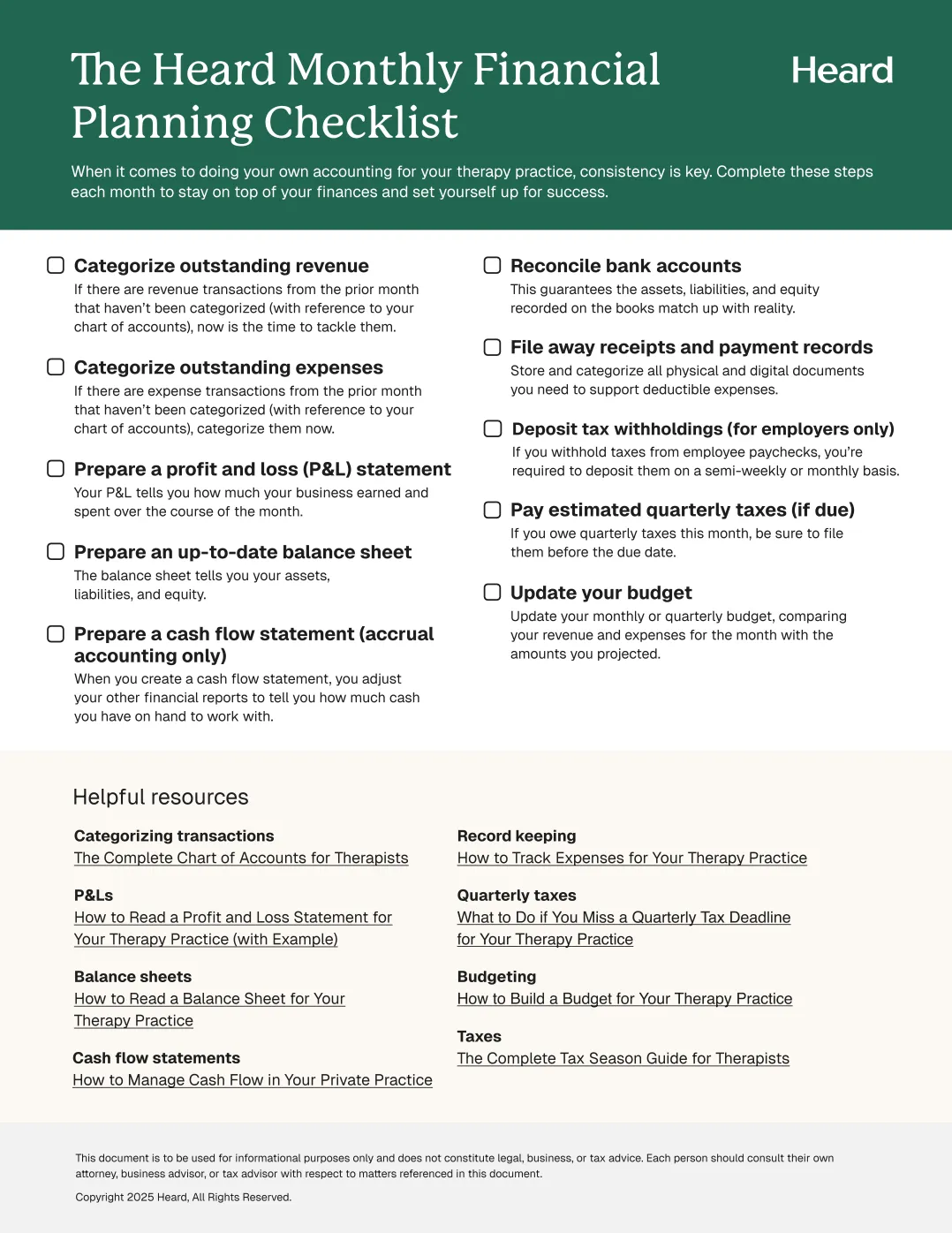Finding the balance between making a profit without sacrificing client services is one of the most challenging aspects of running your own private therapy practice.
Here are some questions you should consider.
- How many hours do you want to work per week?
- What are similar therapists charging in your area for their services?
- How should you structure your fee schedule? Will you be working 9-5 or will you be working early mornings or in the evening to work around client schedules?
- Will you be working weekends or taking off a few weekdays?
- How many hours will you spend each day focusing on clients vs. practice building?
Two crucial steps you can take to evaluate your service to clients are determining what your ideal client load is and what a fair service price is.
{{resource}}
Determining your ideal client load
Over time, as your business attracts new clients, your net business costs will slowly decrease as you add in revenue generated by each client. Eventually, you will reach the point where your net costs equals your net revenue. You can finally start making profit! But how many clients have you taken on to reach this crucial point in your practice?
While the range of caseloads between therapists varies, on average, mental health practitioners feel anything within the range of 30-40 clients is considered a "full-time case load" with 20-25 sessions per week. Let’s say that you allocate 5-6 hours each day with clients (1 hour per client) and the remaining 2-3 on administrative and marketing efforts. Depending on how frequently you are meeting with clients, you can very easily reach a full-time client load.
One needs to be careful exceeding this range as you will likely end up sacrificing time you should spend maintaining and supporting your practice indirectly through activities like marketing and administration. While you can drive up your revenue in the short-term, you may ultimately lose clients through dissatisfaction, which can then hamper your efforts to gain new clients though bad reviews or little to no referrals from clients.
Remember to not only prioritize client wellbeing but also your personal welfare. By focusing on your personal work wellbeing, you will in turn provide a better, stronger, and more empathetic experience for your clients. Their satisfaction will hopefully lead to referrals over time, which can generate additional clients and more revenue.
Determining a fair service price
To determine what a fair service price is, you should do some research depending on where you live and what your ideal client load will be. Learn more about setting fees here. Some factors to consider are your monthly living and business expenses, how many hours you will devote each day to working with clients vs administrative work, and how many clients you will see on a daily basis.
By thinking about these questions, you can start to take steps to improve your client satisfaction without sacrificing service expectations.
—
This post is to be used for informational purposes only and does not constitute legal, business, or tax advice. Each person should consult their own attorney, business advisor, or tax advisor with respect to matters referenced in this post.
{{cta}}
Manage your bookkeeping, taxes, and payroll—all in one place.

Discover more. Get our newsletter.
Get free articles, guides, and tools developed by our experts to help you understand and manage your private practice finances.
Heard's software automatically categorizes every transaction and your books are reviewed monthly by our team for accuracy. Schedule a free consult to learn more.
Schedule a free consult




